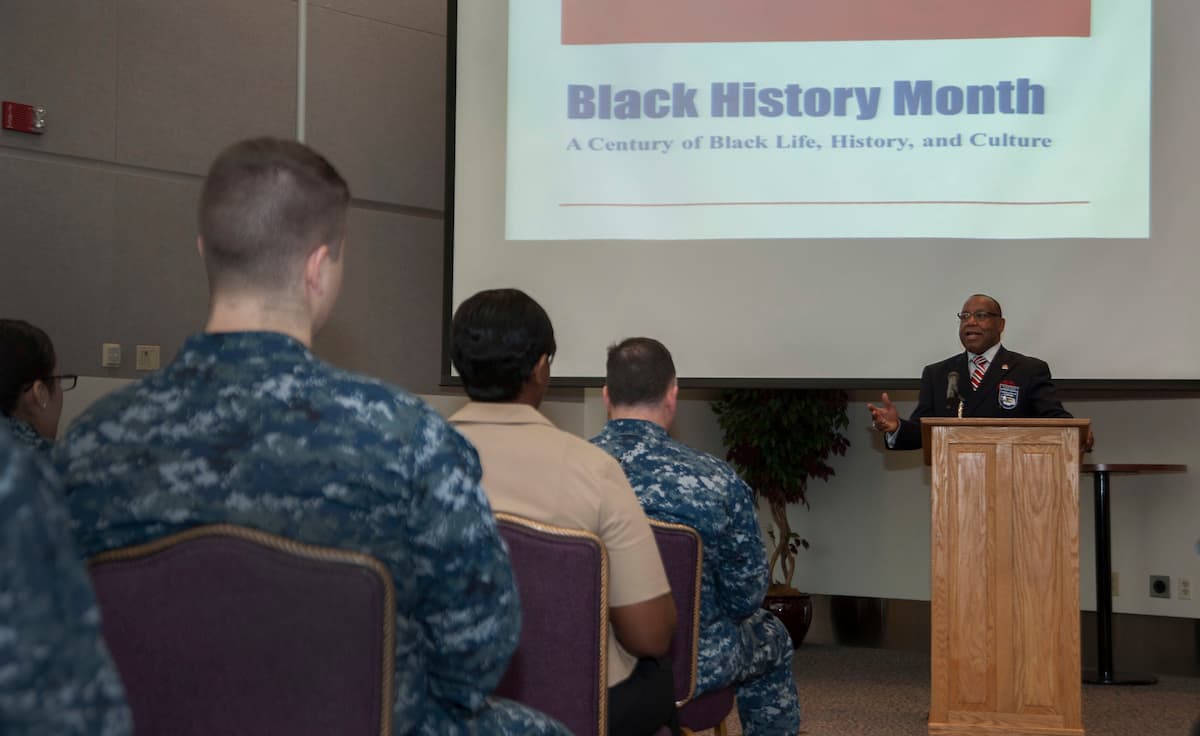This Content Is Only For Subscribers
Since Diddy created Revolt in 2012, it has been a resounding voice for black communities worldwide. Recently, the media house launched its “Imagine If” Black History Month campaign. The initiative allows creators to challenge historical distortion and reshape how the media portrays the black community.
Continue Reading to learn how Revolt Media is using AI in its black History Month campaign.
Become an insider. Subscribe to our newsletter for more top trending stories like this!
Join our Spotcovery Global Black Community Facebook Group for early access to exclusive content and to share in a lively discussion.
About the Revolt “Imagine If” Campaign
In a bid to change the narrative of black identity Revolt Media launched the “Imagine If” that puts the storytelling power in the hands of African American creators. Over the years, the representation of blackness in entertainment and media has usually been ruined by stereotypes and bias. Plus, the black community has had less control over telling its own stories and detailing its achievements.
But Revolt Media’s “Imagine If” campaign turns the table by giving black writers and artists to define their own stories while offering unique and original viewpoints that challenge longstanding misconceptions and prejudices.
For the entire month of February, this “Imagine If” campaign will allow selected writers and artists to use Revolt Media’s digital resources to tell black stories with no restrictions. The best part is that everything is done with the help of artificial intelligence (AI).
People Also Read: Your African American Spirit Wouldn’t Be Complete Without These 7 Black History Month Ideas
Goal of the Revolt Media “Imagine If” Black History Campaign
Revolt Media sees the introduction of this initiative as a way of blending black creativity with the new AI trends. The basic goal of the campaign is to walk away from conventional barriers and show the world the powerful impact that can happen when black writers and artists are handed the tools to tell their own stories.
Generally, the campaign aims to celebrate countless possibilities of arts and offer heartwarming experiences that inspire and empower black creators. According to Revolt, the selected writers and artists will take its social media platforms and tell the black stories in their own voices and unique viewpoints.
Using the Revolt’s “Image If” campaign to reshape the black community stories is among the many ways African Americans can celebrate Black History Month. The campaign is an extension of Revolt’s digital resources and platform that inspires black writers and artists to take back their stories. If you’re interested in the Revolt Media “Imagine If,” visit their website for additional information.
Other Ways Black Creatives Can Celebrate Black History Month
Besides using Revolt Media’s digital resources to tell stories of African Americans, black creatives can honor Black History Month in many ways.
Join Discussions
As an African American creative, you can take part in a debate or online discussions about slavery, racial pride, the creation of negro history, or even Abraham Lincoln’s assassination. Many of these discussions are available on TikTok, Discord groups, or even X (Formerly Twitter) space. You can also host your own live discussion on the mentioned social platforms to talk about the accomplishments of black Americans.
Volunteer at a Local Organization
A simple search on Google can help you find local black organizations in your locality that need volunteers. In the United States, many black nonprofit organizations host all-year-round events.
This means they’ll need helping hands, especially during the celebration of Black History Month. Some of the programs include providing black communities with study materials and cleaning the neighborhood.
Attend a Local Event
Many black communities across America host month-long celebration events to mark Black History Month, even on college campuses. Do a simple Google search or check your local Newspapers to see what Black History Month event is happening in your town or city. Also, try not to attend alone.
Go to the events with those within your circle. Lessons from such events can help the participants discover black intellectual charlatans, now forgotten cultural activists, and learn about Negro History movement.
Get More Creative With the Celebration
Honor Black History Month by giving out gifts of black-created products. There are countless black men and women who write, and create art and other household products. You can even treat your friends and family to dinner at black-owned restaurants.
Re-education of Black Folks in High Schools
The young blacks in high schools need to learn about the study of African American life. To achieve this, African American creatives can come together, and partner with high schools to create black history clubs that can serve as a black studies extension program.
Study of black history in these clubs will help the students learn about things like the black past, Negro Achievement Week, United States history, slaves, urbanization, pre-existing celebrations, and great men like Frederick Douglass. It’ll also give them the inspiration to advocate for social change.
People Also Read: 16 Amazing Black History Month Movies to Help You Appreciate Your Heritage
Overview of Origin of Black History Month
The story of Black History Month started in Chicago in the summer of 1915. Carter G. Woodson traveled from Washington, D.C. to be part of a national celebration of the fiftieth anniversary of emancipation hosted by the state of Illinois.
Become an insider. Subscribe to our newsletter for more top trending stories like this!
Many black people from across the country attended to learn about the prominent role the black community has played in American society since the abolishment of slavery. Woodson, who received a doctorate from Harvard three years earlier, joined the other black populations with a black history display.
Although the event was held at the Coliseum, a large crowd of over 12,000 waited outside for their turn to view the exhibits. The three-week celebration inspired Woodson to establish a body to promote the scientific study of black life and history before leaving town.
On September 9th Woodson met A. L. Jackson and three others at the Wabash YMCA and established the Association for the Study of Negro Life and History (ASNLH). He hoped that people would popularize the research he and many other black intellectuals would publish in The Journal of Negro History. He published the findings in 1916 and encouraged black civic organizations to make achievements researchers were uncovering accessible to the public.
As a graduate member of Omega Psi Phi, he encouraged his fraternity brothers to take up the responsibility. They answered in 1924 with the establishment of Negro History and Literature Week. Then, later changed the name to Negro Achievement Week. Despite their outreach being important, Woodson wanted more impact.
Woodson once told Hampton Institute students listeners “We’ll go back to that beautiful history and it’ll inspire us to greater achievements.” Then, Woodson sent a press release that announced Negro History Week in February, 1926.
Why Woodson Chose February
Woodson’s decision was primarily based on tradition and reform. He selected February because of the birthdays of Abraham Lincoln and Frederick Douglass. Since the murder of Abraham Lincoln in 1865, the Republicans and the black community have consistently honored the fallen president’s birthday.
Additionally, the black communities in the United States had been celebrating Douglass’s birthday since the late 1890s. Hence, Woodson developed Negro History Week around traditional days of remembering the black past. Soon, Woodson moved from the study of two great men to a great race. He viewed the commiseration of the Negro as a race, not as a great men producer.
To him, though Lincoln was great he didn’t free the slaves, the Union Army, including a large number of black soldiers and sailors did. So, instead of focusing on just two men, he tried to focus on the many black people who contributed to the improvement of human civilization.
The 1920s was the time of the New Negro, a name for post war generation, due to its rising racial pride and consciousness. During this time, industrialization, Urbanization, and commercialization brought many black Americans from rural south areas to big cities of the country. Gradually, the new populations became the participants and consumers of black literature and culture.
Black History clubs later emerged and teachers started to demand for materials to teach their pupils. After a short time, progress whites came in and endorsed the initiative. The association and Woodson fought to meet the demand. They created an annual theme for the celebration and made available study materials.
The Start of Black History
The 1990s had a dramatic impact on the study and celebration of black history. Before the end of the decade, Negro History Week was on its way to becoming Black History Month. Then, before Dr. Woodson’s death, the shift to a month-long celebration started.
At the beginning of the 1940s, the black people in West Virginia started to celebrate February as Negro History Month. In Chicago, Fredrick H. Hammaurabi, began celebrating Negro History Month in the mid-1960s.
Having taken an African name, Hammaurabi used the House of Knowledge, his cultural center, to fuse African consciousness with the study of black history. By the late 1960s, young black people on college campuses became conscious of links with Africa. Then, Black History Month gradually replaced Negro History Week at a quickening pace.
Within the association, young people stirred the organization to change with time. Fifty years after the first celebration, in 1976, the organization used its influence to institutionalize the shifts from Negro history to black history and from a week to a month. From the the mid-1970s, every American president, Republican and Democrat has issued proclamations endorsing the Association’s annual theme.
Revolt Media understands the struggles of the black communities. That’s why they created the “Imagine If” campaign to put the storytelling power into the hands of black creators during Black History Month.
People Also Read: Why Is Black History Month Important to African Descendants?
Nearly 80% of consumers visit directories with reviews to find a local business. List your business for free in our exclusive Spotcovery Black-Owned Business Directory.
Spotcovery offers unique and fresh daily content on Black culture, lifestyle, and experiences. We talk about everything black, black people, black-owned and black-owned businesses. We also deliver authentic and relevant content that will inform, inspire and empower you! The future of black media is critical to today’s black experience! Our primary audience includes African Americans, Africans, Afro-Caribbean, and people of African heritage. Black culture is for the culture!
Become an insider. Subscribe to our newsletter for more top trending stories like this!





